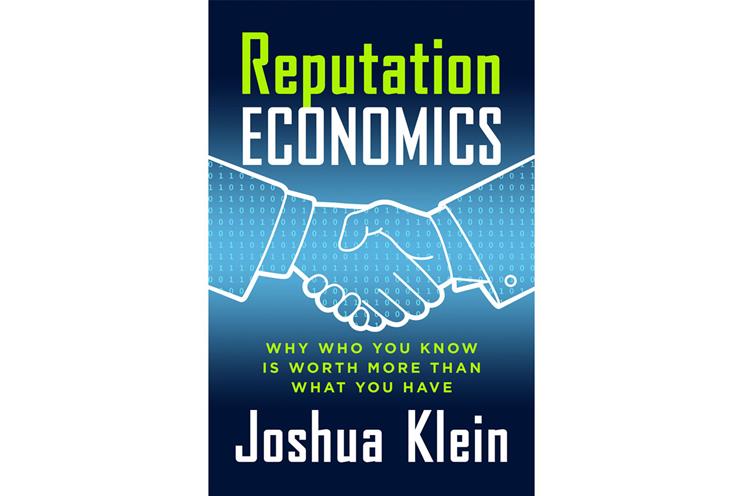Driven by the meritocracy facilitated by social media, the internet and inherent mistrust of financial institutions, the world is changing; and with it the fundamentals of business.
Underpinning this is reputation - the oldest "currency", which, historically, powered commerce and exchange, driven underground as globalisation and westernised systems of finance and commerce became the norm. Interestingly, this form of currency is still the backbone of how much of what are considered less-developed markets, and in extreme cases even the underground world, still operates. After all, before finance, you had to know enough about someone to trust them to make an exchange honourably.
However, we are now seeing emerging marketplaces riding the wide web of social networks, meritocracy and reputation they engender as currency. Supported by a combination of computer intelligence, sensor networks and social platforms, the familiar world of financial commerce is being shaken in favour of a human form of control and currency - reputation. From individuals using social to further their career or gain by tweeting prolifically with "followers" for an upgrade, to those answering technical or professional questions in their own time for no money, each has the same motivation driving their behaviour: namely, building their reputation. Examples in the book include Avis discounting car rentals depending on the number of Twitter followers and Carnival Cruise Lines offering free upgrades based on a Klout score.
Smart businesses have capitalised, creating new ecosystems and structures. From the emergence of business models like eBay, Klout and Amazon, to exchanges like Bitcoin, Reputation Economics includes numerous case studies and examples of organisations born out of this trend. The book encourages us all to think differently about business models, stating the case for data (your identity, who you are, your authenticity and how people know you) and design as the new fundamentals of business.
With the growth of 3D printing and democratisation of production, the things that cannot be made at home will be made closer to where the consumer is, more cheaply, resulting in smaller, more nimble, more localised production - making design the differentiating proposition. As the process of design becomes increasingly collaborative, the reputation of, and trust placed in, designers is crucial.
Reputation Economics does not reveal anything fundamentally new, but does give context to many of the trends we are experiencing.
With the Edelman Trust Barometer in 2012 showing that, for the first time, trust and transparency are now more important to corporate success than a company's assets, this book serves as a useful guide to understanding the seismic changes that have driven this transformation.
It concludes with the view that these trends will result in either the First World experiencing the most incredible revolution, or the most incredible fall.
Reputation Economics by Joshua Klein. Published by Palgrave Macmillan.


